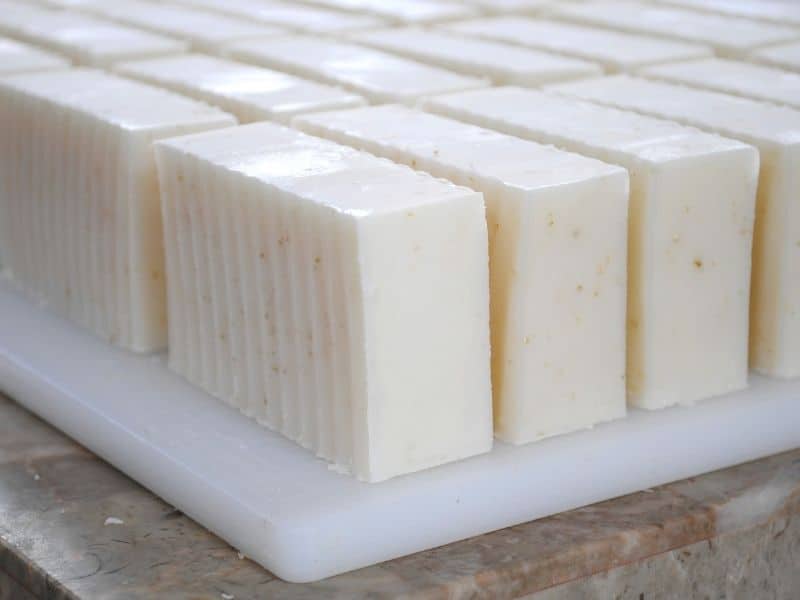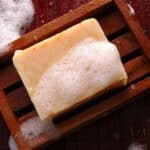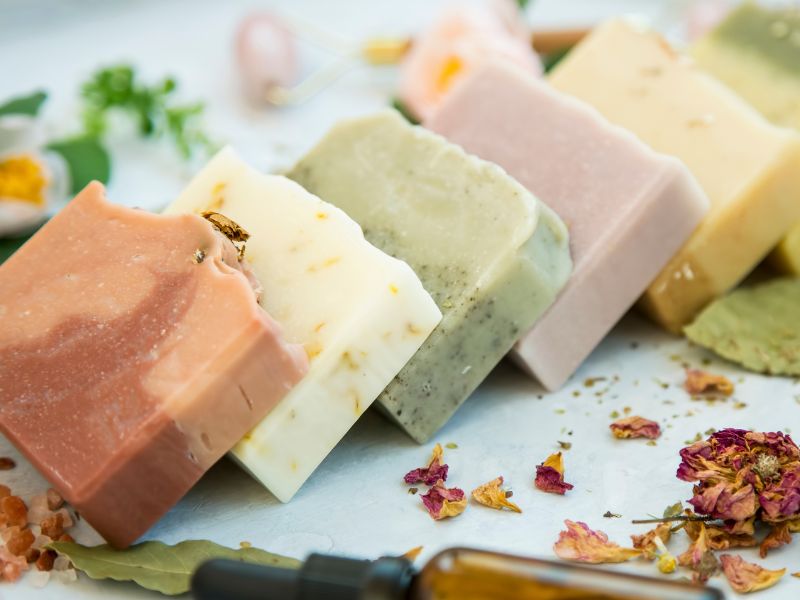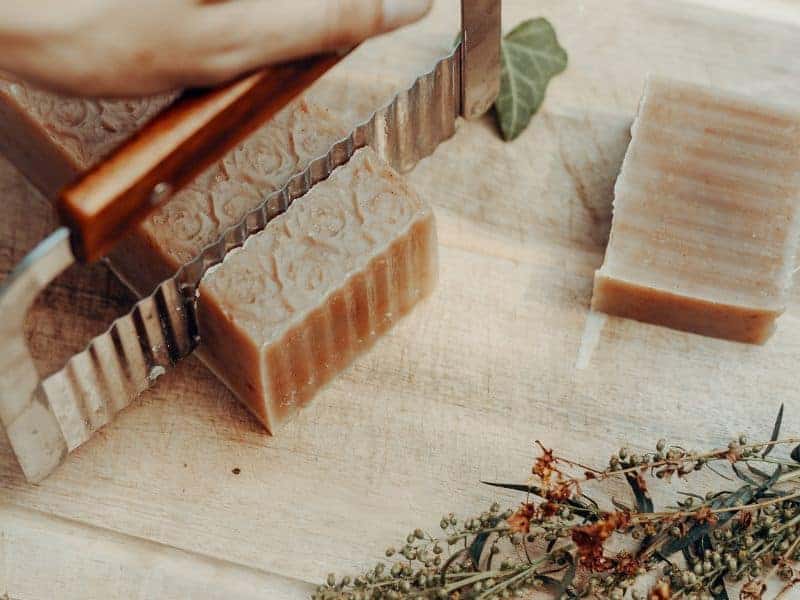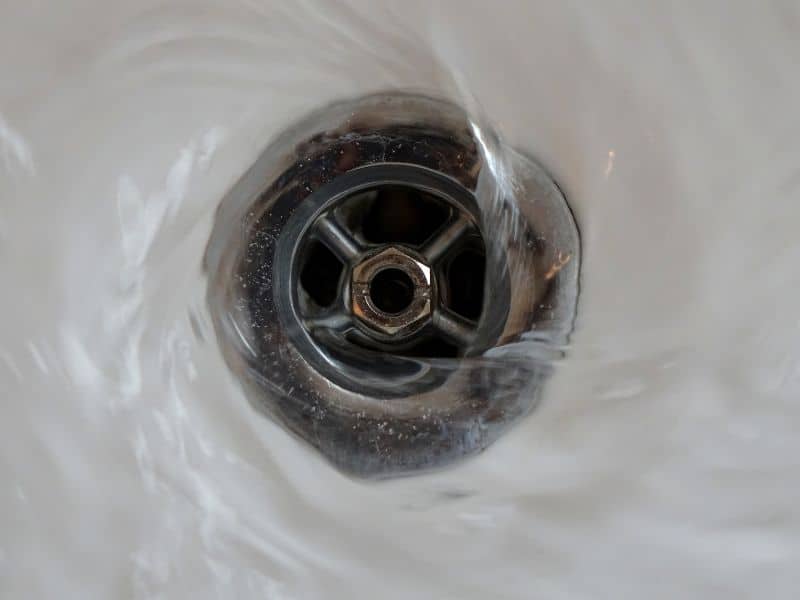Soap, much like candles has to be cured before it can be properly used. The curing process can vary depending on soap type and moisture content, never the less it is an important part of soap making. So, what is soap curing?
Soap curing is a process that removes excess moisture from soap and allows saponification to complete. It is an important step in soapmaking because it helps to ensure that the soap will be able to last for a long time without going bad.
Soap that is not cured properly can go rancid quickly or develop mold. Which is something nobody wants, particularly people that are making and selling it.
Let’s take a closer look at what soap curing means for people who use soap.
What exactly is soap curing?
Soap curing is a process in which excess moisture is allowed to evaporate from soap and the soap itself becomes harder because of the loss of water. The saponification process is allowed to be complete during soap curing.
How is soap cured?
Soap can be cured in a few different ways. The most common method is to simply let the soap sit out in a well-ventilated area for 4-6 weeks. This allows the soap to slowly lose moisture and become harder and longer-lasting.
Another method is to cure soap in a dehydrator or oven on a very low setting. This speeds up the soap curing process but can sometimes result in soap that is too dry and brittle.
Curing soap is important because it allows saponification to complete. Saponification is the chemical reaction that occurs when soap is made. This reaction produces soap and glycerin. If saponification is not allowed to complete, the soap will be unstable and may not last very long.
Soap that is properly cured will last much longer than soap that has not been cured. It will also be less likely to go rancid or develop mold. This makes it a more desirable product for soapmakers and consumers alike.
How long is soap cured?
Soap can be cured for anywhere from 4-6 weeks to a few months. The longer the soap is cured, the harder and more stable it will be. Soap that is cured for a longer period of time may also have a less intense scent.
Soap curing is an important step in soapmaking because it allows the soap to last longer and be more stable. It is a process that should not be skipped if you want your soap to be of the best quality.
How do you know when soap is fully cured?
There is no one answer to this question. Each soapmaker will have their own method of determining when soap is fully cured.
Generally, soap is considered to be fully cured when it is hard, has a reduced scent, and is less likely to go rancid or develop mold. Once you’ve made a few batches of soap you will get a feel for what cured soap is like.
Why is curing necessary?
Curing soap is necessary because it allows saponification to complete. Saponification is the chemical reaction that produces soap and glycerin. If saponification is not allowed to complete, the soap will be unstable and may not last very long.
Soap that is properly cured will last much longer than soap that has not been cured. It will also be less likely to go rancid or develop mold. This makes it a more desirable product for soapmakers and consumers alike.
Curing soap is also important because it allows the soap to harden. This makes the soap easier to use and less likely to melt away quickly.
This also allows you to handle and package the soap and get it ready for storage or for shipping.
What are the benefits of curing soap?
The benefits of soap curing are:
- soap is less likely to go rancid or develop mold
- soap is harder and more stable
- saponification is allowed to complete, resulting in a better quality soap product.
Soap curing is an important step in soapmaking that should not be skipped. By allowing the soap to cure, you will produce a more stable and longer-lasting product.
What are the dangers of not curing soap?
The dangers of not curing soap are:
- soap may not last very long
- soap may be unstable
- soap may not be as hard
- saponification may not be complete, resulting in a lower quality soap product.
Soap that is not cured properly may not last very long and may be unstable. This can lead to soap that is not of the best quality. Curing soap is an important step in soapmaking that should not be skipped if you want a high-quality product.
Frequently Asked Questions
Soap curing is a process in which the excess moisture is allowed to evaporate from soap. This allows the saponification process to be completed and the soap to become harder and longer lasting.
Curing soap is important because it allows saponification to complete. Saponification is the chemical reaction that produces soap and glycerin. If saponification is not allowed to complete, the soap will be unstable and may not last very long. Soap that is properly cured will last much longer than soap that has not been cured. It will also be less likely to go rancid or develop mold. This makes it a more desirable product for soapmakers and consumers alike.
Soap can be cured for anywhere from 4-6 weeks to a few months. The longer the soap is cured, the harder and more stable it will be. Soap that is cured for a longer period of time may also have a less intense scent.
The benefits of soap that has been properly cured are: soap is less likely to go rancid or develop mold; soap is harder and more stable; saponification is allowed to complete, resulting in a better quality soap product.
Curing soap is an important step in soapmaking that should not be skipped. By allowing the soap to cure, you will produce a more stable and longer-lasting product.
Conclusion
In conclusion, soap curing is an important step in soapmaking that should not be skipped. Curing soap allows saponification to complete, resulting in a better quality soap product.
Soap that is properly cured will last much longer than soap that has not been cured and is less likely to go rancid or develop mold.
The benefits of soap that have been properly cured are many, so it is important to take the time to allow your soap to cure.

